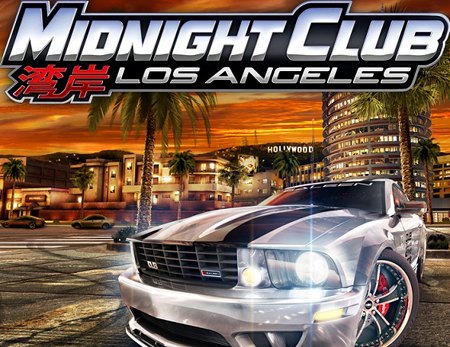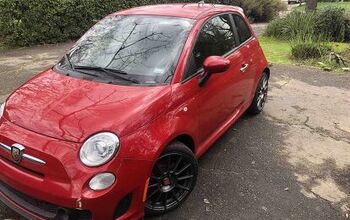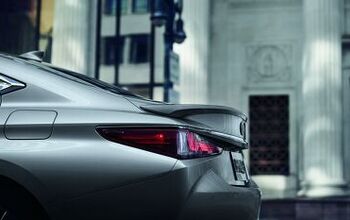Videogame Review: Midnight Club LA

Now that the Need For Speed franchise has definitively and conclusively jumped the shark, Rockstar’s Midnight Club has emerged as the standard-bearer for street racing games. Enter the newest edition: Midnight Club: LA. The recipe for this one was deceptively simple: take the GTA IV driving engine, enhance it to reflect different (i.e. real) cars, stick the driver in yet another trendy city-– this time LA– and let him get into as much trouble as possible. On the whole, Midnight Club picks up right where NFS Carbon left off (let’s pretend ProStreet and Undercover never happened). It’s a fun, arcade-style game, but it’s not without its flaws.
As always, the game’s story mode is its main selling point. You start out as an aspiring racer who moves to LA to take on the big guns. From there, it’s all very familiar. You start out with a barely capable sport-compact (I picked the 240SX), competing to earn money and reputation points, unlock other events and upgrade your car’s parts or your car itself. Along the way, you’ll have to put up with contrived cut scenes rife with bad acting. As a casual racer, then, Midnight Club: LA fits the bill perfectly.
The cornerstone of the racing in the game is checkpoint racing. You’ll race in the streets of LA, from checkpoint to checkpoint. Checkpoints will appear in front of you as billowing towers of smoke in the distance, providing targets to drive towards. It’s up to you to navigate the streets to find the shortest distance between those checkpoints. You can’t miss a checkpoint on the way to the finish line, and first across the line wins. Repeat ad nauseam.
There are other types of racing to interrupt the monotony. Police pursuits can occur anywhere. You can also deliver your vehicle to someone for someone for some reason, or opt for series racing. The latter consists of consecutive checkpoint races for GP-style points until someone (hopefully you) hits a certain number of points, or your beer buzz wears off.
Playing MC:LA has its other frustrations. Chief among them: the pure insanity of the AI drivers. No matter how well you race or how much cash you pump into your car, the computer’s whip or whips will be one to seven seconds behind you. The AI will be riding your bumper Nascar-style. Then, one wipe-out and it’s over.
The police pursuits are ridiculously difficult. Cops randomly appear on the map– even as you drive towards their location. Les flics are also way faster than you are, and have a knack for pulling 180s without hitting anything or anyone. Yes, they can dodge cars you can’t. And they’re shit hot at immobilizing you against guardrails– or anything else you can’t drive through. If you can’t beat a pursuit within two minutes, pull over and pay the fine. As a pursuit gets longer, cops get more numerous and nastier, making them nearly impossible to escape.
Given that MC:LA is set in the streets, obstacles are abound, from gateways you somehow can’t crash through, to cars that veer into an intersection and wipe you out right as you hit your nitrous. Going from top speed to zero is a frequent occurrence. It happens so much that it ruins MC:LA’s long-term playability.
After winning a few series and grinding out highway races to earn reputation points, I found myself tired of having to manage all of the following simultaneously: watching for the smoke checkpoints, watching for cops not to create a pursuit mid-race, checking the in-game GPS to make sure I had the optimal route, watching the other cars in front of me, watching racers and dealing with the “track” in general.
While the AI manages all these tasks with gusto, running flawlessly race after race, twelve minutes of wetwork can be negated by one unfortunate entanglement. This game could hugely benefit from a mulligan system like the one seen in GRID. If you could re-take one turn, instead of having to restart an entire series, MC:LA may be playable beyond the point of initial novelty.
It’s a shame, because there’s a ton that MC:LA does right. Driving is intuitive. The customization options are vast, but easy to use. Graphics are great, and the city of LA is faithfully, stunningly represented. Even the music ain’t bad. But unlike GTA, in which the driving was only a means to an end, in MC:LA, driving is the end. And to that end, after I’d unlocked enough of LA and seen enough cars, I had no desire to come back to the frustration of elastic AI, multitasking demands and the tedium of grinding out easy highway races to earn scant reputation points.
Rating: 3.5/5

Latest Car Reviews
Read moreLatest Product Reviews
Read moreRecent Comments
- MRF 95 T-Bird Whenever I travel and I’m in my rental car I first peruse the FM radio to look for interesting programming. It used to be before the past few decades of media consolidation that if you traveled to an area the local radio stations had a distinct sound and flavor. Now it’s the homogenized stuff from the corporate behemoths. Classic rock, modern “bro dude” country, pop hits of today, oldies etc. Much of it tolerable but pedestrian. The college radio stations and NPR affiliates are comfortable standbys. But what struck me recently is how much more religious programming there was on the FM stations, stuff that used to be relegated to the AM band. You have the fire and brimstone preachers, obviously with a far right political bend. Others geared towards the Latin community. Then there is the happy talk “family radio” “Jesus loves you” as well as the ones featuring the insipid contemporary Christian music. Artists such as Michael W. Smith who is one of the most influential artists in the genre. I find myself yelling at the dashboard “Where’s the freakin Staple singers? The Edwin Hawkins singers? Gospel Aretha? Gospel Elvis? Early Sam Cooke? Jesus era Dylan?” When I’m in my own vehicle I stick with the local college radio station that plays a diverse mix of music from Americana to rock and folk. I’ll also listen to Sirius/XM: Deep tracks, Little Steven’s underground as well as Willie’s Roadhouse and Outlaw country.
- The Comedian I owned an assembled-in-Brazil ‘03 Golf GTI from new until ‘09 (traded in on a C30 R-Design).First few years were relatively trouble free, but the last few years are what drove me to buy a scan tool (back when they were expensive) and carry tools and spare parts at all times.Constant electrical problems (sensors & coil packs), ugly shedding “soft” plastic trim, glovebox door fell off, fuel filters oddly lasted only about a year at a time, one-then-the-other window detached from the lift mechanism and crashed inside the door, and the final reason I traded it was the transmission went south.20 years on? This thing should only be owned by someone with good shoes, lots of tools, a lift and a masochistic streak.
- Terry I like the bigger size and hefty weight of the CX90 and I almost never use even the backseat. The average family is less than 4 people.The vehicle crash safety couldn't be better. The only complaints are the clumsy clutch transmission and the turbocharger.
- MaintenanceCosts Plug in iPhone with 200 GB of music, choose the desired genre playlist, and hit shuffle.
- MaintenanceCosts Golf with a good body and a dying engine. Somewhere out there there is a dubber who desperately wants to swap a junkyard VR6 into this and STANCE BRO it.




































Comments
Join the conversation
The South Central expansion should be up tomorrow.
I reviewed this game a while back, and found basically the same things you did. I like the game overall, and after they released the update for the dynamic difficulty it became much better. Here's our Midnight Club: LA review if you're interested in reading it. My main problem with it, other than the one mess-up costing you the whole race or (more annoyingly) the series, was that it takes so long get through and get more cars. It's good that it's not super-short, but it gets very monotonous after a while having not even received many of the cars available.